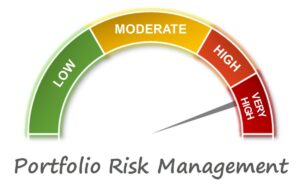Each individual must start somewhere, and investing may seem intimidating at first glance; however, with some simple investment tips, you can begin investing more confidently today. Understanding your risk tolerance, goals, and time horizon is crucial to making smart decisions during volatile periods. Knowing this information can prevent making hasty decisions that lead to unexpected outcomes.
1. Understand the Basics
Investing is an effective way to put your money to work for you, potentially increasing its growth more than if left in a savings account. But for beginners, the concept can seem intimidating and complicated with its various acronyms, charts, and financial jargon. Each investment class provides its own potential rate of return and risk profile, so understanding where assets lie on this scale is critical in selecting appropriate investments to invest in.
Beginners often start with mutual funds or index funds that hold many different stocks and reduce risk through diversification. Before making their initial investment decisions, investors should carefully consider their individual risk profile and comfort levels with risk.
2. Know Your Risk Tolerance
Your advice may have been that investing to get rich quickly should be followed, but this advice must take into account each person’s risk tolerance and financial circumstances before giving advice. Understanding your risk tolerance is the first step to making intelligent investment decisions and avoiding emotional reactions to market fluctuations.
Your risk tolerance refers to how much loss you can comfortably accept and is usually determined by the timing and liquidity needs for meeting goals. For instance, if you need money from investments immediately to buy a house in a short period of time, you may require greater growth potential than someone with longer investment horizons.
3. Set Realistic Expectations
Investment can be an unpredictable journey, so setting realistic expectations is vital. Whether saving for an expensive purchase or building wealth over time, setting specific goals and understanding your investment horizon helps navigate it with greater ease and peace.
For instance, if you’re saving for a home in the coming years, low-risk investments such as short-term bonds or certificates of deposit might be appropriate. Conversely, investing for retirement or building wealth over time allows more risks through stocks that have historically provided higher returns.
4. Know Your Options
One of the key aspects to keep in mind when starting investing is your time horizon. A longer investment horizon gives you more freedom to take risks and potentially reap greater returns.
Another factor is fees. Decreasing costs by selecting low-cost investments and decreasing trading frequency will keep more of your money working towards growth. Make sure that you understand the various investment accounts and their functionality before selecting one that meets your goals and needs.
5. Spread Your Money
One of the smartest investments you can make is diversifying your assets. Diversifying means spreading out your investment across various asset classes, industries, and regions so that any one investment doesn’t negatively affect the health of your portfolio as a whole.
Choose mutual funds or exchange-traded funds (ETFs) that track broad market indexes instead of trying to pick individual winners, rather than trying to pick individual stocks that may fluctuate short term. Remembering this fact will help keep you calm when your investments go through rough patches.
6. Be Consistent
Investing is a long-term game, so any short-term market fluctuations should not derail you from reaching your goals. Crafting an investment plan tailored to your risk profile and time horizon can help ensure a steady course even when markets fluctuate drastically.
Emergency funds can act as a financial safety net and protect you from making hasty decisions that might hinder future returns, like selling investments at inappropriate times or taking on debt that might compromise returns. Finally, investing regularly through dollar cost averaging can lower risk while simultaneously offering greater potential rewards over time.
7. Be Patient
Investing is an effective way to build financial security, but only if you keep at it. Beginners must recognize that financial markets, especially stocks, may experience sudden and significant fluctuations. Reacting quickly during such moments could cost more in the end.
Checking account balances too frequently, focusing on short-term volatility, or selling investments based on recent performance are all bad habits that could harm long-term returns. Beginning investors should create a plan they can stick with instead of relying on hunches or hot tips – perhaps by setting up an emergency savings fund first.
8. Don’t Overreact
An unfortunate tendency for newcomers is their emotional responses to market fluctuations. Selling in fear or buying on rallies could lead to costly mistakes and threaten their long-term financial goals. Making and following a well-thought-out investment plan can make all the difference, so keeping your goals front of mind while seeking expert advice when necessary can make all the difference in outcomes.
Investors should avoid becoming the victim of herd mentality by not following what their friends or media sources suggest they purchase and instead doing their own research to identify investments that meet both long-term goals and risk tolerance requirements.
9. Be Prepared
Investing can be intimidating for beginners, but a few key points can help new investors make sound investment decisions. Beginners in stock investing should carefully consider their goals and time horizons and decide if individual stocks are suitable.
Mutual and index funds can be an ideal starting point for new investors, offering lower fees than individual stocks while still giving access to diversified exposure to the stock market. Beginners should avoid making investments that they do not fully comprehend; take advice from market pundits with caution!




